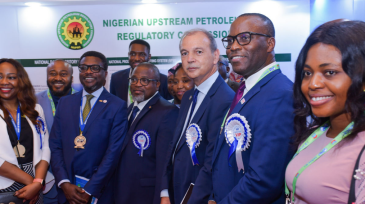Career Development
The free, virtual program is designed to help participants build data-driven capabilities for the energy industry.
Saipem's center includes a full-scale simulator designed to replicate real operational scenarios to deliver an immersive training experience.
Boston takes the top spot followed by Atlanta and Seattle in WalletHub's annual report.
-
Amanda Rico, a specialist in resume building, editing, and career solutions for senior and executive-level professionals, provides job seekers with industry-specific resume tips to help you get the job you want.
-
Streaming 21 December, SPE will present a compilation of three episodes of SPE Live highlighting young professionals.
-
Young professionals gather during NAICE to learn from industry experts as part of the 2022 Africa Young Professionals Program.
-
An overview of the Women Leadership Program at the 2022 Nigeria Annual International Conference and Exhibition.
-
Industry experts discuss diversity and inclusion at the Nigeria Annual International Conference and Exhibition (NAICE) in 2022.
-
New channel features highlights from SPE events around the globe.
-
What is peer review, why is it important, and how can you get involved?
-
Three Energy Influencers talk about the meaning and importance of leadership from the perspective of young professionals.
-
The SPE Colombia Section, through analysis of data obtained in several studies, identified a lack of soft skills in the country’s young professionals in the energy sector. As a result of the analyses, a project was designed to improve these skills through various activities and keynotes.
-
We connected with Carbon Clean CEO Aniruddha Sharma to learn about his journey taking the company forward and how carbon capture is strategically important to move toward the net-zero goal. He also sheds light on the positive changes in the startup ecology that have sprung up recently as compared with the days when Carbon Clean was started. Finally, he has some pertin…













